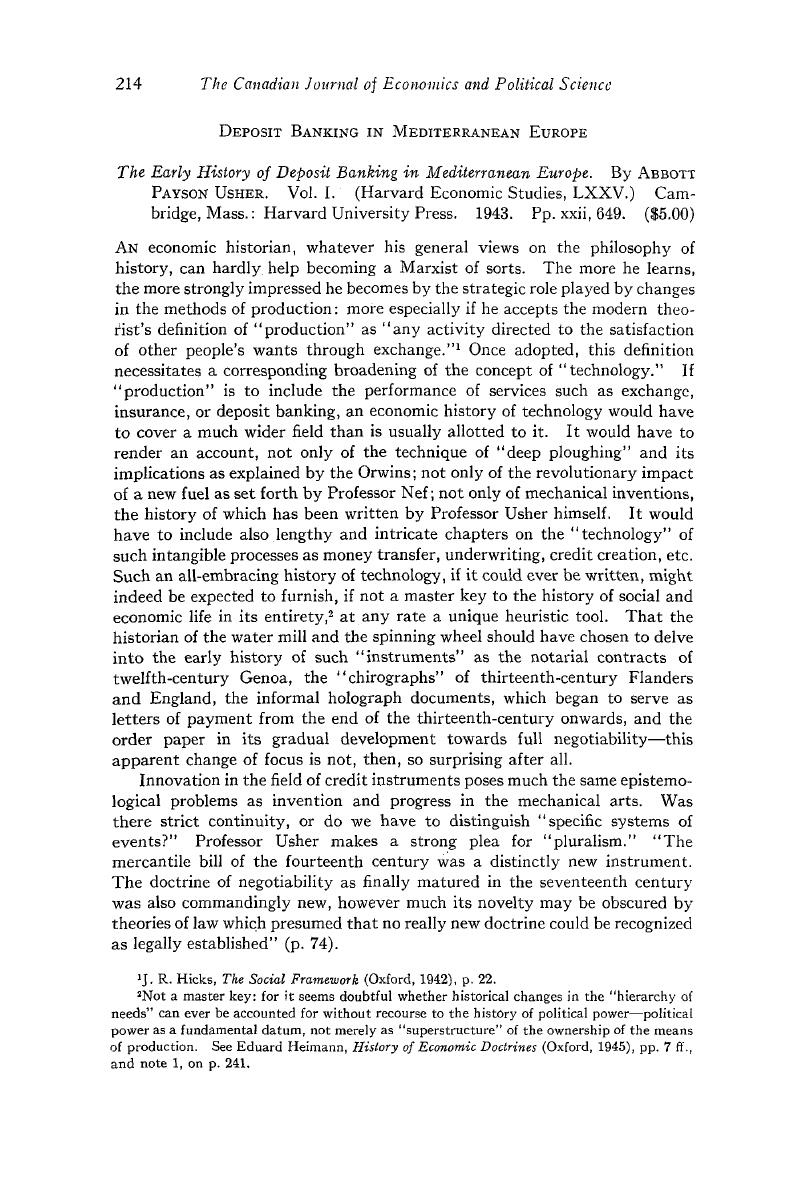No CrossRef data available.
Article contents
Deposit Banking in Mediterranean Europe
Published online by Cambridge University Press: 07 November 2014
Abstract

- Type
- Review Articles
- Information
- Canadian Journal of Economics and Political Science/Revue canadienne de economiques et science politique , Volume 12 , Issue 2 , May 1946 , pp. 214 - 218
- Copyright
- Copyright © Canadian Political Science Association 1946
References
1 Hicks, J. R., The Social Framework (Oxford, 1942), p. 22.Google Scholar
2 Not a master key: for it seems doubtful whether historical changes in the “hierarchy of needs” can ever be accounted for without recourse to the history of political power—political power as a fundamental datum, not merely as “superstructure” of the ownership of the means of production. See Heimann, Eduard, History of Economic Doctrines (Oxford, 1945), pp. 7 ff., and note 1, on p. 241.Google Scholar
3 Intellectual difficulties of essentially the same nature were encountered in the sphere of monetary policy, where a naive commodity concept of money long prevented the development of a sound token coinage (see Usher, p. 231 f.). O Marxist spirit! whither dost thou lead us?
4 A pedantic reader might wonder why a different date (January 17, 1433) is given on p. 291.
5 It may be of some interest to compare this with a similar, if much more primitive, practice in a number of South German and Austrian cities in late medieval and early modern times. In those towns a substantial number of “inactive” deposits were kept by the municipal authorities themselves who, acting as “trustees general” (oberste Gerhaben) reserved to themselves the right to administer the property of orphans during their minority. The city councils thus had at their disposal relatively large liquid funds which they used for granting loans to citizens and needy noblemen, or else borrowed themselves for public purposes. It would seem that these operations regularly involved only cash transactions. The crucial question, whether these activities ever led to the creation of book credit, and so (in Professor Usher's sense) to banking proper, cannot be answered without further research. The present writer wishes to draw attention to two ledgers preserved in the Archives of the City of St. Poelten (Austria) that record those lending operations during the period from 1549 to the beginning of the seventeenth century. Unless destroyed during this war those volumes, together with similar sources, would probably repay systematic investigation.




